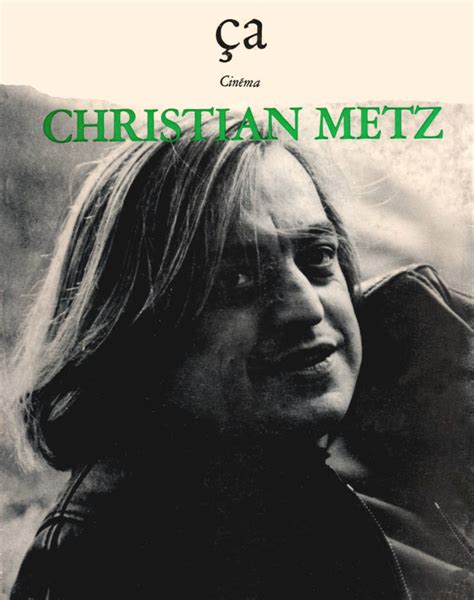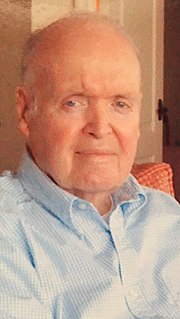A Quote by Marguerite Yourcenar
Every life is punctuated by deaths and departures, and each one causes great suffering that it is better to endure rather than forgo the pleasure of having known the person who has passed away. Somehow our world rebuilds itself after every death, and in any case we know that none of us will last forever. So you might say that life and death lead us by the hand, firmly but tenderly.
Related Quotes
We are left with nothing but death, the irreducible fact of our own mortality. Death after a long illness we can accept with resignation. Even accidental death we can ascribe to fate. But for a man to die of no apparent cause, for a man to die simply because he is a man, brings us so close to the invisible boundary between life and death that we no longer know which side we are on. Life becomes death, and it is as if this death has owned this life all along. Death without warning. Which is to say: life stops. And it can stop at any moment.
When one existentially awakens from within, the relation of birth-and-death is not seen as a sequential change from the former to the latter. Rather, living as it is, is no more than dying, and at the same time there is no living separate from dying. This means that life itself is death and death itself is life. That is, we do not shift sequentially from birth to death, but undergo living-dying in each and every moment.
The evil which assails us is not in the localities we inhabit but in ourselves. We lack strength to endure the least task, being incapable of suffering pain, powerless to enjoy pleasure, impatient with everything. How many invoke death when, after having tried every sort of change, they find themselves reverting to the same sensations, unable to discover any new experience.
There would be no chance at all of getting to know death if it happened only once. But fortunately, life is nothing but a continuing dance of birth and death, a dance of change. Every time I hear the rush of a mountain stream, or the waves crashing on the shore, or my own heartbeat, I hear the sound of impermanence. These changes, these small deaths, are our living links with death. They are death's pulses, death's heartbeat, prompting us to let go of all the things we cling to.
Photography is linked with death in many different ways. The most immediate and explicit is the social practice of keeping photographs in memory of loved beings who are no longer alive. But there is another real death which each of us undergoes every day, as each day we draw nearer to our own death. Even when the person photographed is still living, that moment when she or he was has forever vanished.
The reality of the Life Review is becoming part of our every day understanding. We know that after death, we have to look at our lives again; and we’re going to agonize over every missed opportunity, over every case in which we failed to act. This knowledge is contributing to our determination to pursue every intuitive image that comes to mind, and keep it firmly in awareness. We’re living life in a more deliberate way. We don’t want to miss a single important event. We don’t want the pain of looking back later and realizing that we blew it, that we failed to make the right decisions.
Every man who truly loves a woman, and every woman who truly loves a man, hopes and dreams that their companionship will last forever. But marriage is a covenant sealed by authority. If that authority is of the state alone, it will endure only while the state has jurisdiction, and that jurisdiction ends with death. But add to the authority of the state the power of the endowment given by Him who overcame death, and that companionship will endure beyond life if the parties to the marriage live worthy of the promise.
Altruism is for those who can't endure their desires. There's a world as ambiguous as a moan, a pleasure moan our earnest neighbors might think a crime. It's where we could live. I'll say I love you, Which will lead, of course, to disappointment, but those words unsaid poison every next moment. I will try to disappoint you better than anyone else has. --Mon Semblable
But how to know the falsity of death? How can we know there is no death? Until we know that, our fear of death will not go either. Until we know the falsity of death, our lives will remain false. As long as there is fear of death, there cannot be authentic life. As long as we tremble with the fear of death, we cannot summon the capacity to live our lives. One can live only when the shadow of death has disappeared forever. How can a frightened and trembling mind live? And when death seems to be approaching every second, how is it possible to live? How can we live?
We do not know what awaits each of us after death, but we know that we will die. Clearly, it must be possible to live ethically-with a genuine concern for the happiness of other sentient beings-without presuming to know things about which we are patently ignorant. Consider it: every person you have ever met, every person you will pass in the street today, is going to die. Living long enough, each will suffer the loss of his friends and family. All are going to lose everything they love in this world. Why would one want to be anything but kind to them in the meantime?
God might grant us riches, honours, life, and even health, to our own hurt; for every thing that is pleasing to us is not always good for us. If he sends us death, or an increase of sickness, instead of a cure, Vvrga tua et baculus, tuus ipsa me consolata sunt. "Thy rod and thy staff have comforted me," he does it by the rule of his providence, which better and more certainly discerns what is proper for us than we can do; and we ought to take it in good part, as coming from a wise and most friendly hand.
The lesson, I suppose, is that none of us have much control over how we will be remembered. Every life is an amalgam, and it is impossible to know what moments, what foibles, what charms will come to define us once we're gone. All we can do is live our lives fully, be authentically ourselves and trust that the right things about us, the best and most fitting things, will echo in the memories of us that endure.
Not only is there no guarantee of the temporal immortality of the human soul, that is to say of its eternal survival after death; but, in any case, this assumption completely fails to accomplish the purpose for which it has always been intended. Or is some riddle solved by my surviving forever? Is not this eternal life itself as much of a riddle as our present life?







































